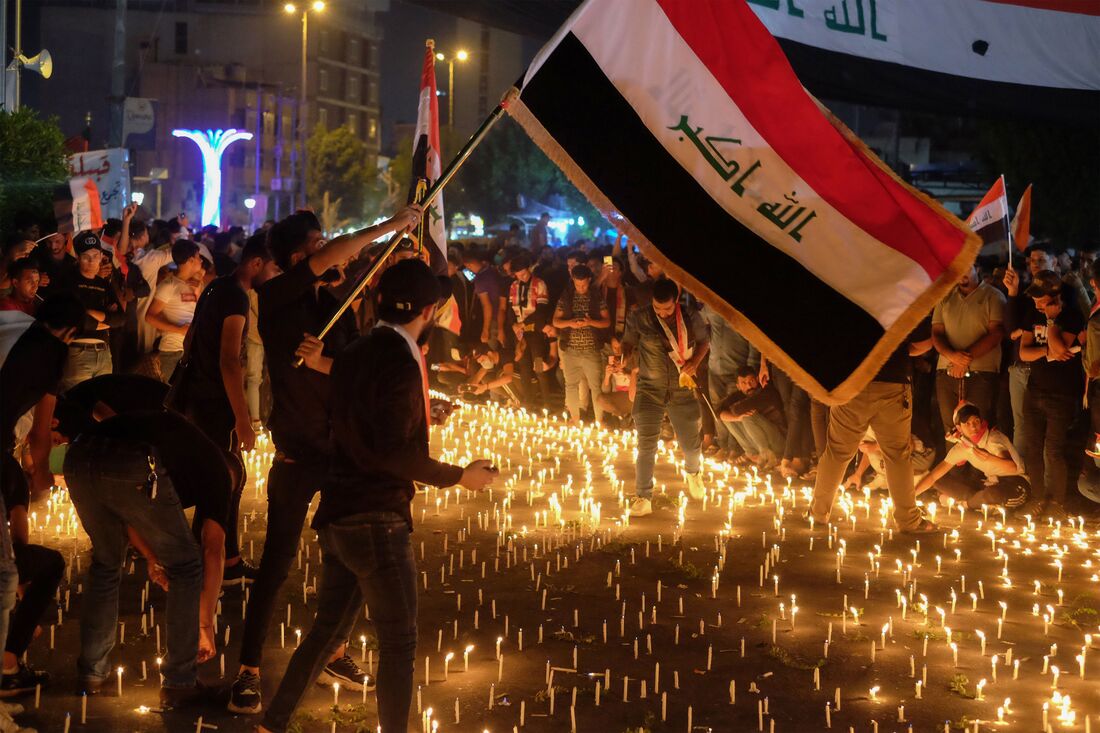While George W. Bush had a vision, which some would say was Utopian and some would say Machiavellian, to spread democracy in the Middle East, the result in Iraq was a sectarian oligarchy. The process started with putting in place a constitution that had no connection with the social fabric of the country. The new constitution divided people into Shiite, Sunni and Kurds. When the law looks at and treats each citizen as a Sunni, Shiite or Kurd, the citizen will perceive himself as such before he considers himself to be an Iraqi.
The corrupt government did not invest in any productive sector and instead used the government facilities as cash cows. The different sectarian leaders hired redundant people just to increase their voter base. On top of that, government contracts were awarded at inflated price tags to enrich politicians and their cronies.
The Iraqi situation is very similar to the one on Lebanon. However, in Iraq the culprit is very obvious: It is the US. Though one cannot only blame America for all of Iraq’s calamities, the system was put in place while they controlled the country; hence it is their responsibility. Now that the US has realized the monster it created, it is trying to destroy it by applying maximum pressure, as part of President Donald Trump’s strategy to weaken enemies. US Secretary of State Mike Pompeo has threatened to sanctionofficials for corruption and for attacking protesters. Washington did sanction, in December, three militia leaders who were attacking protesterswith the help of Iran.
It is admirable to watch the tenacity of the Iraqi people, who are not deterred or intimidated by the state’s brutal crackdown on their protests. The protests also show a degree of organization. Despite the assassinations of leading members, the popular protests keep on gaining momentum. They have a clear message and clear demands. Like in Lebanon, it is very hard for the current regime to be responsive to their demands. The Iraqi regime thrives on corruption; therefore it is unable and unwilling to conduct reforms. The leaders have nothing to offer their base but sectarian appeal. Again, like in Lebanon, the Iraqis are prisoners of a democracy trap. What can they do? How can they flee this unrepresentative pseudo-democracy? The Iraqi case is even more acute then the Lebanese one because the armed forces are also sectarian and politicized. They have been spreading fake news to discredit the protests, describing protesters as “vandals.” The army is not perceived to be on the people’s side.
The alternative is for the Iraqi protesters to work on building regional, professional and sectorial networks. As these networks take shape, they could communicate with each other and put in place a plan for the country — a comprehensive plan of reform that encompasses the various sectors, including finance, education, energy, and health care. When a structure for these networks materializes and communication channels are formalized, the protesters could announce the formation of a parallel transitional government with a concrete reform plan and new election law, leading ultimately to a new constitution for Iraq.
However, in order for their efforts not to be treated as an insurgency, they should communicate with the international community — neighboring Arab countries, the US, the European Commission, and the UN — in order to gain their recognition. In this case, once the protesters’ structure is recognized internationally, the current corrupt elites would have to step down, as they would have lost their legitimacy. The transition would not happen peacefully. Those politicians have their militias and thugs, who are ready to take to the street and slay people demanding dignity. However, having international recognition and applying international pressure would give the protesters huge impetus as well as protection.
Former US National Security Adviser Colin Powell had a “Pottery Barn rule” that applies to war. It says, “You break it, you own it,” and it later became a doctrine named after him. Well, the US’ mistakes and bad policies broke Iraq. It is now time for America to own those mistakes and fix them. This is not achieved by letting the country freefall, but by helping the protesters put together a representative government that can conduct reforms and fulfill the aspirations of the Iraqi people.
Source


 RSS Feed
RSS Feed